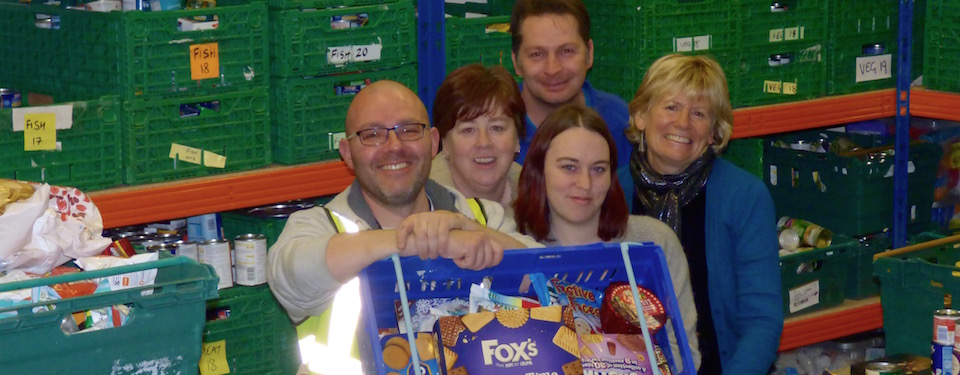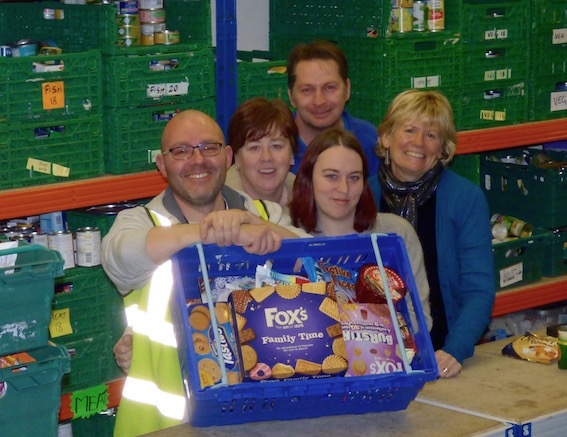
At a recent supermarket collection (where foodbank volunteers ask members of the public to make a food donation) I was approached by a lady who asked “Why should I donate food for people who are too lazy to work and provide for themselves?” It’s a fair question and it deserves a fair and honest answer. So, what exactly do foodbanks do?

Jason White, Wendy Doyle, Amie Thompson, Steve Vincent & Denise Comer
The Leeds South and East Foodbank will provide a 3 day emergency food parcel for those people in crisis. No individual or family is allowed to use a foodbank more than 3 times in any 6 month period; we are there to help people in a crisis, not to create dependency.
What does “in crisis” mean? Most of those who use foodbanks are people facing benefit delays (mainly in-work benefits) or benefit changes (from one benefit to another), low income (often due to zero hours contracts), benefit sanctions, homelessness, debt, domestic violence and a range of other issues.
So can anyone just turn up to a foodbank and get food? No! People have to be referred to a foodbank. The referral agency can be an organisations like Citizens Advice, Leeds City Council One-Stop Centres, some GPs, a number of children’s organisations and women’s refuges, etc.
The referral agency provides the person or family with a voucher which they take to a foodbank (there are eleven foodbank distribution sites in south and east Leeds) to be redeemed. There, the persons details are checked, the nature of the crisis established and the person or family is provided with food. Another aspect of the foodbank’s role to signpost the person to organisations who can help resolve their long term issues. We are glad to say that most people only use a foodbank once.
One of the people who used a foodbank prior to Christmas returned a few weeks later with a food donation. With the donation he left a note saying “Thank you it was much appreciated. I just wanted to return the favour and the support at that time and if it is required again in the future. Kind regards.”
The foodbank is supported by a network of volunteers. Some donate a few hours of volunteering while others provide a day-or-two. No-one gets paid.
So, where does the foodbank get its food from? The food comes from a variety of sources. Food donations are made by individuals, community groups businesses and churches. Supermarkets help by allowing the volunteers to organise food collection days. The same people and organisations also help the foodbank financially. Although there are no salaries to pay, the foodbank needs to finance an office, warehouse, a vehicle to move the food around the city. Also it needs access to telephone and internet services. The cost is around £1,500 – £1,800 per month.
So to that lady who approached me or any other member of the public I say: foodbanks are not there to help the lazy. They are there to help people with genuine needs who for a period of their lives are struggling.
In a fast changing world people can be doing well one year and a year later be struggling. Who knows who will be using a foodbank this time next year; it might be that lady, it might be me.
This post was written by John Newbould using our Create an article for South Leeds Life page.


